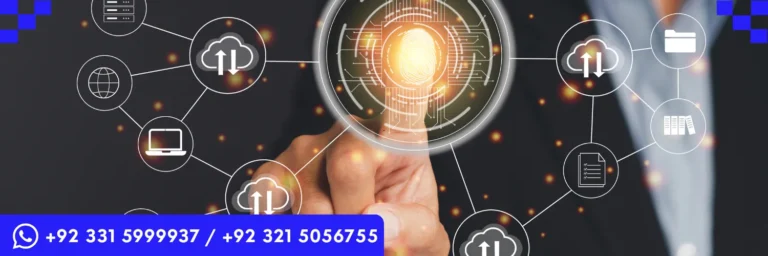In today’s world, the need for skilled professionals in environmental engineering has never been greater. With increasing global concerns about climate change, pollution, and sustainability, industries require experts who can develop innovative solutions to protect and improve our environment. The ICTQual Level 4 Diploma in Environmental Engineering offers an in-depth, one-year program designed to provide students with the knowledge and skills needed to tackle the environmental challenges of the modern world.
Whether you’re looking to start a career in environmental engineering or enhance your expertise in sustainability and environmental management, this course will equip you with the tools and practical experience to make a positive impact on the planet.
Course Introduction
The ICTQual Level 4 Diploma in Environmental Engineering is designed for individuals looking to build a career in environmental engineering, focusing on the development of sustainable practices across various industries. The course covers crucial topics like waste management, water treatment, renewable energy systems, environmental regulations, and sustainable infrastructure. Students will learn both the technical and environmental aspects of engineering, developing practical skills to design and manage projects that minimize environmental harm.
This course is ideal for those who wish to address pressing environmental concerns, create solutions for clean energy, water conservation, pollution control, and contribute to global sustainability goals. The diploma is designed to provide students with an understanding of engineering principles while integrating environmental responsibility throughout the learning process.
The ICTQual Level 4 Diploma in Environmental Engineering provides students with a comprehensive understanding of environmental engineering practices, theories, and technologies. Over the course of one year, students will explore key areas like environmental systems, pollution control, water treatment, waste management, and renewable energy, while developing the technical and problem-solving skills necessary to address current and future environmental challenges.
The course integrates theory with practical application, ensuring students are not only knowledgeable about the latest environmental technologies but also prepared to implement them in real-world settings.
Key Areas of Study Include:
- Water Treatment and Wastewater Management
Study the processes and technologies involved in water treatment, wastewater management, and sustainable water practices that are vital for maintaining clean water supplies and protecting public health. - Pollution Control and Environmental Impact
Learn how to identify sources of pollution (air, water, soil), assess their impact on the environment, and design systems to control or mitigate pollution, with a focus on sustainable and eco-friendly solutions. - Sustainable Design and Green Infrastructure
Understand the principles of green design, sustainable architecture, and the development of eco-friendly infrastructure, including energy-efficient buildings, green roofs, and low-impact construction practices. - Renewable Energy Systems
Explore renewable energy technologies such as solar, wind, hydro, and bioenergy, and learn how to integrate these systems into sustainable engineering projects. - Environmental Law and Regulations
Gain knowledge of local, national, and international environmental laws, regulations, and standards, and understand how they impact the design, implementation, and operation of engineering projects. - Environmental Risk Assessment and Management
Learn to assess environmental risks associated with engineering projects, develop mitigation strategies, and ensure compliance with environmental protection standards and guidelines.
Learning Outcomes
Upon successful completion of the ICTQual Level 4 Diploma in Environmental Engineering, students will be able to:
- Design Sustainable Environmental Solutions: Apply knowledge of engineering principles and environmental science to create sustainable systems that reduce environmental harm in areas like water treatment, waste management, and energy use.
- Assess and Mitigate Pollution: Identify sources of pollution and develop systems and processes to control or eliminate their harmful effects on air, water, and soil quality.
- Implement Renewable Energy Solutions: Design and implement renewable energy systems, such as solar, wind, or hydropower, to provide sustainable power in various settings, from residential to industrial applications.
- Navigate Environmental Laws and Regulations: Understand and apply environmental laws, policies, and regulations to ensure that engineering projects meet legal and sustainability standards.
- Manage Environmental Risks: Conduct environmental impact assessments and risk analyses to anticipate potential challenges and propose solutions that minimize ecological damage.
- Apply Green Engineering Practices: Use sustainable design principles and green building techniques to reduce energy consumption, waste production, and environmental degradation in engineering projects.
Study Units
The ICTQual Level 4 Diploma in Environmental Engineering includes the following core study units:
- Introduction to Environmental Engineering (10 Credits)
- Environmental Impact Assessment (10 Credits)
- Water and Wastewater Treatment (10 Credits)
- Air Quality and Pollution Control (10 Credits)
- Solid Waste Management and Recycling (10 Credits)
- Renewable Energy Systems (10 Credits)
- Sustainable Engineering Practices (10 Credits)
- Environmental Regulations and Policies (10 Credits)
- Climate Change and Environmental Risk Management (10 Credits)
- Soil and Groundwater Contamination (10 Credits)
- Environmental Project Management (10 Credits)
- Advanced Topics in Environmental Engineering (10 Credits)
These units cover essential topics that will provide students with both theoretical knowledge and practical experience in environmental engineering, preparing them to solve complex challenges in sustainability, resource management, and pollution control.
Course Benefits
- Comprehensive Skillset: This diploma offers a broad range of skills in environmental engineering, including pollution control, sustainable design, water management, and renewable energy, ensuring students are well-equipped for the demands of the industry.
- Hands-On Learning: Students will gain valuable practical experience through case studies, project work, and industry-relevant learning, ensuring they are ready to apply their knowledge in real-world settings.
- Career Growth Opportunities: With a growing focus on sustainability and environmental responsibility, graduates can pursue careers in various sectors, including environmental consultancy, waste management, renewable energy, and government agencies focused on environmental policy.
- Contribute to Global Sustainability Goals: By learning to design environmentally sustainable solutions, students will have the opportunity to work on projects that contribute to global goals such as reducing carbon footprints, enhancing energy efficiency, and preserving natural resources.
- Industry-Relevant Knowledge: The course emphasizes the latest industry trends, technologies, and regulations, ensuring that graduates are prepared to tackle contemporary environmental challenges and lead the way in eco-friendly engineering solutions.
- Pathway to Further Education: The diploma provides a solid foundation for further study in environmental engineering or related fields, such as a degree program or professional certifications, for those wishing to deepen their expertise.
Who is This Course For?
The ICTQual Level 4 Diploma in Environmental Engineering is ideal for:
- School Leavers: High school graduates who want to start a career in environmental engineering and gain a thorough understanding of sustainable practices in engineering.
- Career Changers: Professionals from other fields who are passionate about environmental issues and want to transition into a career that focuses on sustainability, renewable energy, and environmental protection.
- Technicians and Engineers: Individuals already working in engineering or related industries who want to specialize in environmental engineering and broaden their skills in sustainability and pollution control.
- Environmental Enthusiasts: Individuals who are passionate about the environment and want to contribute to projects aimed at reducing ecological damage, improving resource management, and promoting green technologies.
- Government and Policy Makers: Those working in public sectors or NGOs who wish to deepen their understanding of environmental regulations and policy implementation.
The ICTQual Level 4 Diploma in Environmental Engineering offers a comprehensive and hands-on approach to addressing the world’s pressing environmental challenges. By focusing on key areas like pollution control, water management, renewable energy, and sustainable design, this one-year diploma provides the skills needed to design and implement effective solutions for a sustainable future.
Whether you’re starting your career in environmental engineering or looking to specialize in eco-friendly technologies, this course offers a strong foundation to make a meaningful difference in the world. Take the first step toward building a sustainable and environmentally responsible future by enrolling in the ICTQual Level 4 Diploma in Environmental Engineering today.






